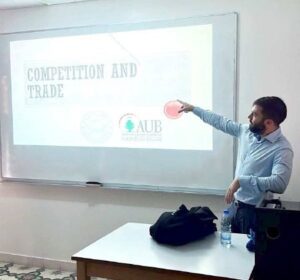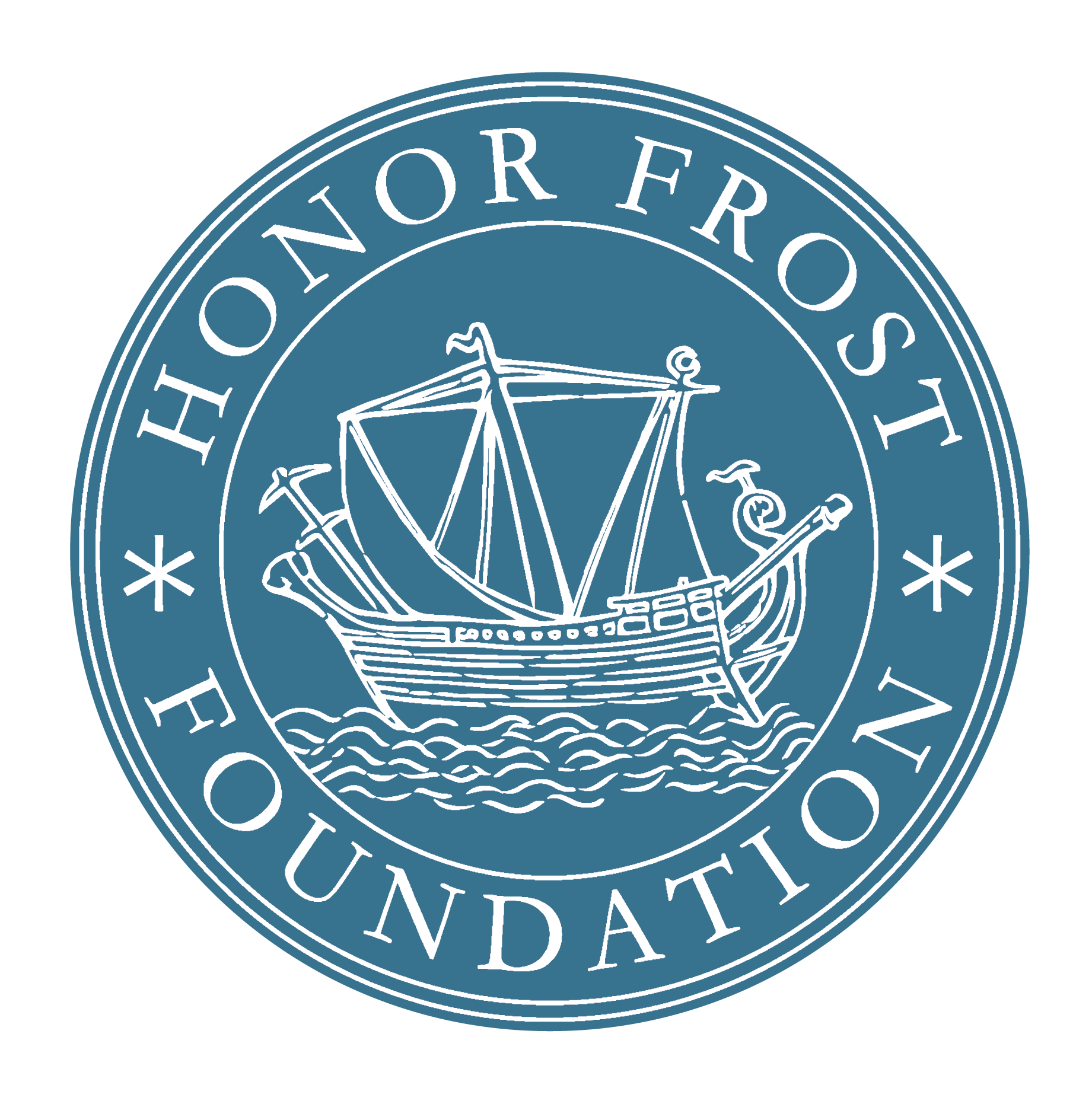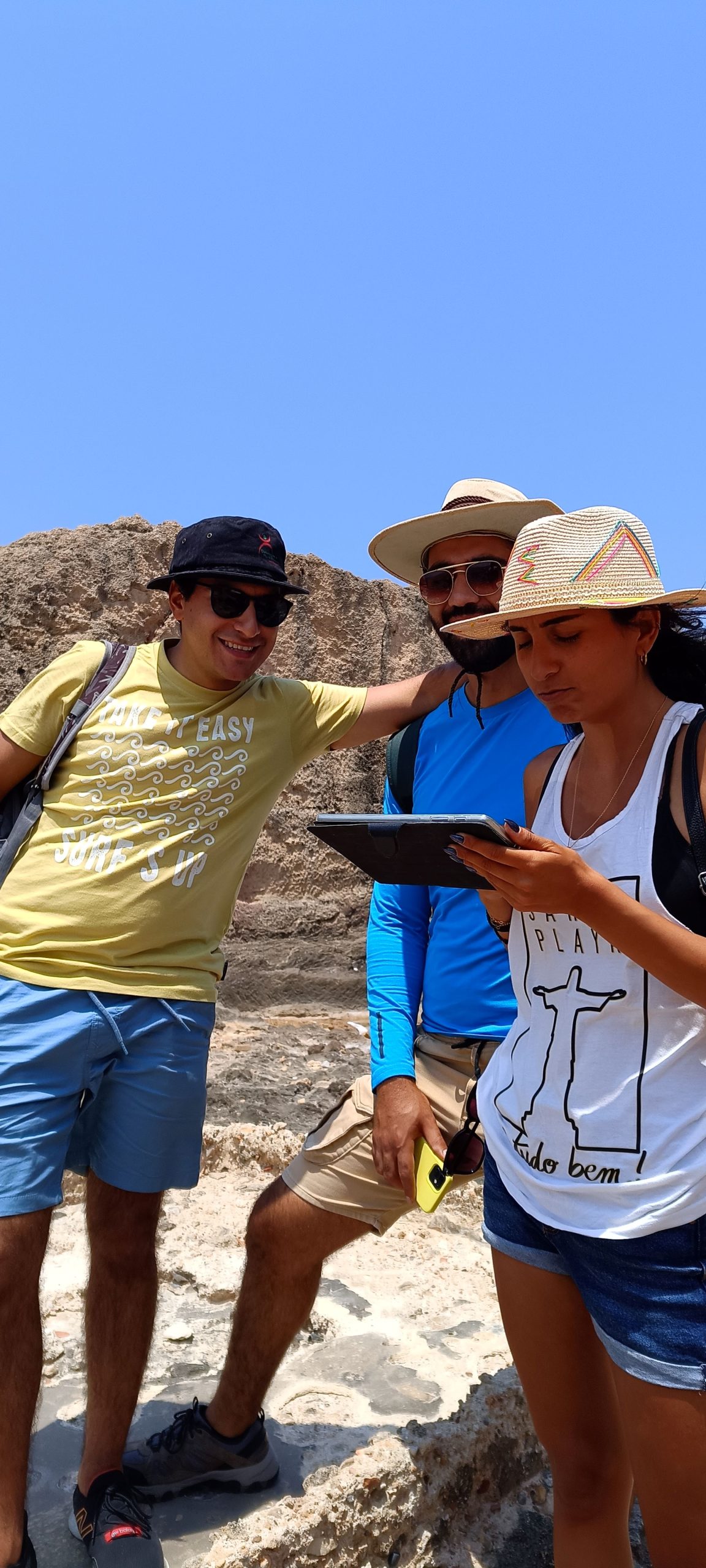Minor in Marine Sciences and Culture – American University of Beirut
The Honor Frost Foundation has teamed up with the American University of Beirut to launch a Minor in Marine Sciences and Culture. Housed within the Department of History and Archaeology at AUB, the MSCU program also involves collaborations with the Departments of Biology and Geology. The minor in Marine Sciences and Culture is a multi-disciplinary program of study that applies the principles of archaeology, oceanography, geology, and biology to shed light on human interaction with the sea. Whether students intend to pursue a career in maritime archaeology or oceanography, or simply wish to learn more about maritime history and science through a practical, hands-on experience, this exciting program can complement a wide variety of academic fields.
Curriculum
Students choosing to minor in Marine Sciences and Culture must complete MSCU 201, MSCU 202, and MSCU 203, along with two electives chosen from any of the following departments: History and Archaeology (which may include MSCU 204, Coastal and Marine Environments: Maritime Cultural Heritage), Geology, and/or Biology. MSCU 201 is a general course that focuses on introducing and providing context for the entire program, specifically through defining and exploring maritime landscapes through maritime archaeology and marine sciences. MSCU 202 delves into marine remote sensing and geophysical techniques, the principles of prospecting, and the mapping of underwater sites and environments. MSCU 203 is an intensive fieldwork crash course that puts all the above techniques into practice, allowing students to apply all they have learnt during the first two courses of the Minor. MSCU 204 is the elective course focuses on Maritime Cultural Heritage as a concept, discussing the social and economic benefits associated with the conservation and preservation of heritage, and the methodology involved in the process.
The MSCU course is delivered by a range of lecturers from AUB and the HFF Lebanon team. International experts also contribute to each of the courses, along with visiting lecturers from local academic institutions such as the Lebanese University. This has allowed for a rich and diverse curriculum that provides students with a unique academic experience. The successful completion of the Minor allows students to further explore careers and education in the fields of Marine Archaeology, Geology and Oceanography/Ocean Engineering.
HFF Scholarship
The HFF also offers scholarships for archaeology students and early career archaeologists that are currently enrolled or completed their studies at the Lebanese University in order to attend the Minor course (click here for details). The scholarships cover the university fees and provide students with a stipend. This opportunity grants Lebanese students the chance to learn about maritime archaeology as the subject is not included in any graduate or post-graduate curricula. To find out about current scholars supported by the HFF click here.
For more information on the courses offered see below….
MSCU 201 – Coastal and Marine Environments: Introductory Course
Coastal environments and coastal systems provide a basis to explore human interaction with the sea in antiquity. This course explores how archaeologists go about investigating and recording these past activities, and introduces students to a multi-disciplinary approach that combines oceanography and archaeology to shed light on maritime history.
MSCU 202 – Marine Techniques, Prospecting, and Mapping
From echo sounders to bathymetry and photogrammetry, this course explores the variety of techniques and technologies that are used to investigate and document the seabed. Students will gain an understanding of the technical methodology used by oceanographers and geologists to explore maritime environments.
MSCU 203 – Summer Fieldwork Course
The field school, during which students will undertake fieldwork in the Mediterranean Sea, offers a range of experiences, from coastal survey and the deployment and analysis of remote sensing geophysical techniques and data, through to diver survey and the documentation of archaeological remains on the seabed.
MSCU 204 – Coastal and Marine Environments: Maritime Cultural Heritage
This course addresses the range of threats, whether natural or anthropic, that presently target maritime cultural heritage assets. It presents a comprehensive overview of international and national legislation related to the protection and management of the maritime cultural heritage. It also covers the application of ethnography to the maritime archaeological enquiry and reflects on how maritime communities, past and present, are an integral part of the socio-cultural heritage of a country.
MSCU211 – A History of Maritime Economics
This course investigates maritime economics of the Mediterranean region from the Neolithic to the Roman Period based on the principles of maritime archaeology and marine sciences with a particular focus on the eastern Mediterranean. Students will be introduced to the concept of a maritime landscape  as an inclusive and seamless zone, and learn the ways in which archaeologists, historians, and economics define, quantify, and assess economic activity within these zones. The course will address topics related to the production and distribution of goods through maritime transportation, port management and port systems, maritime commercial networks, the exploitation of marine resources, and the relationship between ports and hinterland within the defined period of study.
as an inclusive and seamless zone, and learn the ways in which archaeologists, historians, and economics define, quantify, and assess economic activity within these zones. The course will address topics related to the production and distribution of goods through maritime transportation, port management and port systems, maritime commercial networks, the exploitation of marine resources, and the relationship between ports and hinterland within the defined period of study.






